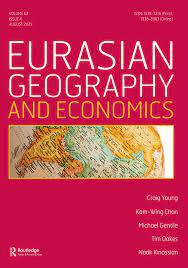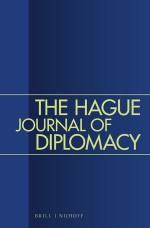Russia’s Cultural Diplomacy in the Post-Soviet Space: The Making of “One People”

In the aftermath of the Ukraine crisis, a wave of scholarship resorted to realism and its core assumptions in an attempt to explain Russia’s assertiveness. This article challenges these predominant accounts by contending that the co-constitutive link between identity and foreign policy deserves far greater attention to understand Russia's international actions. To this end, it examines the evolution of an underexplored yet central subset of Russia’s foreign policy in the post-Soviet space, namely its cultural diplomacy. Concretely, it applies a poststructuralist research design to a textual selection including official documents and Presidential declarations from 2008–2018, semi-structured interviews with policy-makers, cultural operators and experts, and participant observation. The article finds that, between 2008 and 2012, three competing articulations of identity were proposed in Russia's cultural diplomacy, targeting Russian (Russkiy) ethnicity, the country’s multi-ethnicity, and its collective memory. However, after the 2012 presidential elections, these were replaced by a new articulation reproducing Russia’s identity through a) radicalization of cultural differences (with the West/the EU) and b) negation of alternative identities (within Russia and the post-Soviet space). Amidst increased political contestation with the 2011–2 Russian protests, this hegemonic intervention from the state-level sought to (re-)produce this identity through an antagonistic delimitation of the social and secure the regime’s survival.






